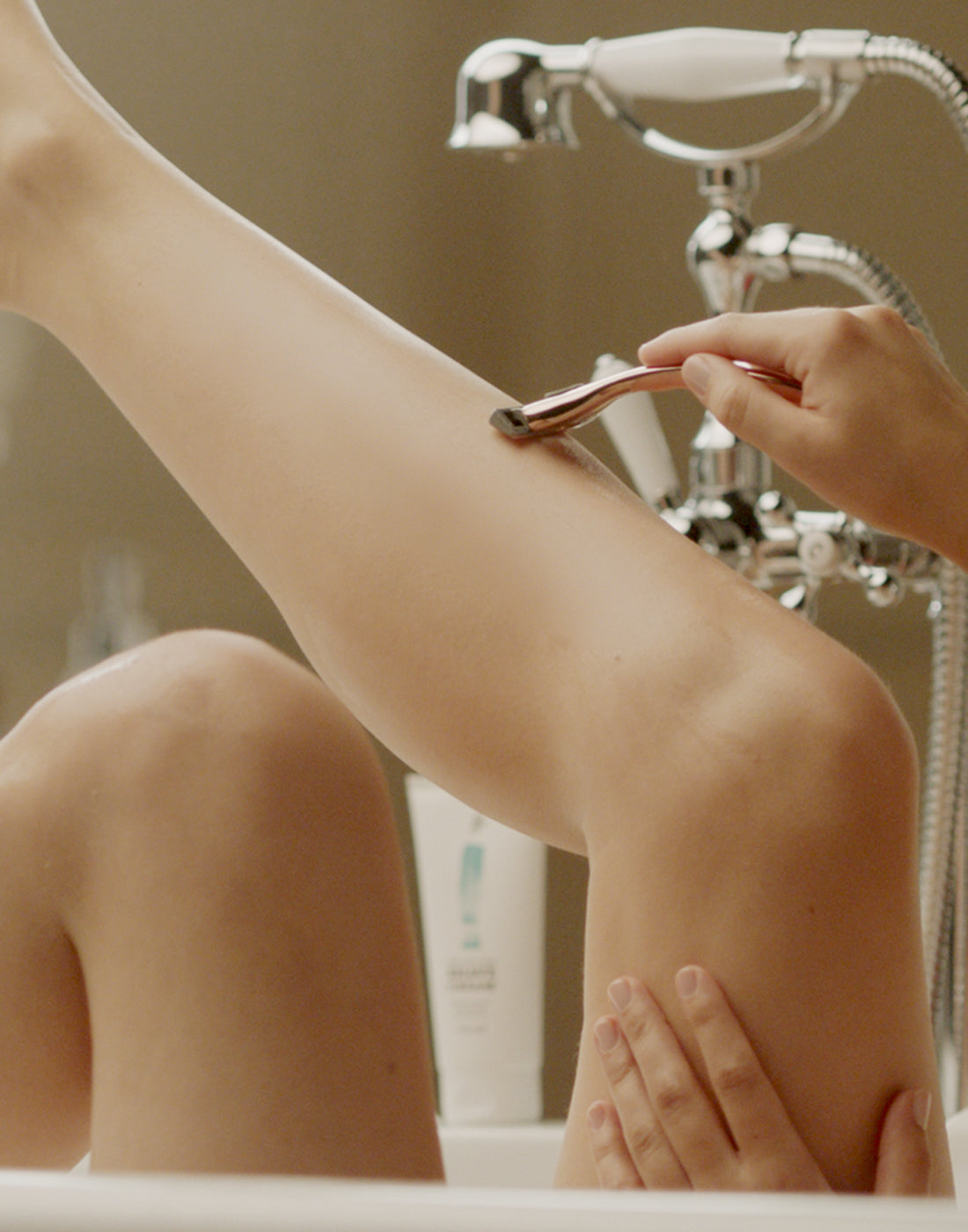Find out why razor hygiene is critical to your health
Ever used a razor for longer than a week? How about two? Longer still? You’re not alone.
A lot of women confess that changing their blades is something they forget to do regularly, or that it’s just too expensive to keep up with. But did you know that by using blades for too long you could actually be putting your health at risk?
Skin expert Dr Karim has been looking into this. She says it’s not just nicks and cuts that we should be worried about, but that you could even put yourself in hospital if you don’t change your razor blades more regularly. Her advice: change them every week.
This is an issue close to our heart – it’s why we created FFS. Check out what Dr Karim has to say below:
Q&A with Dr. Karim
How does bacteria gather and grow on blades?
As the razors run over the skin they scoop up a few hundred thousand microorganisms onto the surface of their blades. Rinsing razors in hot water after shaving only removes the visible debris. And when left in a warm, moist bathroom, an environment which favours the speedy reproduction of bacteria and the other microbes, our razors could be gathering millions and billions of bacteria in just a few weeks.
What are the risks of using razor blades that contain lots of bacteria?
There’s the risk of localised infection where you shave – things like pustules and abscesses, which will require medical treatment, usually with antibiotics. Unfortunately, a bacteria ridden blunt razor cut could also lead to more generalised infections such as Cellulitis, which is an infection of the deeper layers of the skin most commonly caused by bacteria that normally live on the skin's surface. Cellulitis can cause swelling, fevers and can become extremely serious; in the worst case, left untreated it can even lead to Bacteraemia, which is a bacterial infection of the blood and a serious medical condition that could lead to hospitalisation.
A lot of doctors encounter patients with abscesses in the underarms, and the first piece of advice that the doctors give is to ensure that their patients change their razor blades on a regular basis.
What risks are associated with using blunt blades?
Blunt blades are the bane of anyone who has shaved. Not only do they increase the risk of pseudo-folliculitis (shaving rash), but the incomplete cutting of the hair can lead to folliculitis (inflammation of the hair follicle), causing red raised bumps that can be unsightly and itchy. Worse still, the hair follicles can become infected with Staphylococcus Aureus, giving rise to pustules and abscesses. Recurrent episodes of any of the above can also give long term complications such as:
- Post inflammatory hyperpigmentation, where the skin becomes darker
- Hypertrophic scarring and keloid formation
- Temporary and permanent hair loss giving a patchy appearance
Why haven’t I heard about this before?
It’s strange. Women tend to be more into grooming and are usually perceived to be more hygienic, the one exception is when it comes to changing our razor blades. Men change their razor blades more often than women because they use their razors on their face. Many women don’t know that the microbiome of a woman varies from the body to more intimate areas, and it’s really important not to spread the bacteria between the different parts of the body. Yet by overusing blunt and bacteria-filled razors, women risk causing harm to both the health and appearance of their skin.
Imagine sleeping in damp sheets for months, or not changing our bath towels. Why do we accept dirty razors?
How can I keep shaving but reduce the risk of irritation or infection?
To avoid problems, I would advise my patients to use a good quality razor and change the blades on a regular basis. I recommend changing blades once a week, and not leaving razors in the damp bathroom. Friction Free Shaving’s service is a simple and cost-effective way for women to do this. It’s the first shaving club aimed at women and provides a hassle free way of ensuring that there are always just the right number of blades when we need them. Hopefully, we can now say goodbye to the blunt, bacteria ridden blades and say hello to healthy, smooth, hairless skin.






